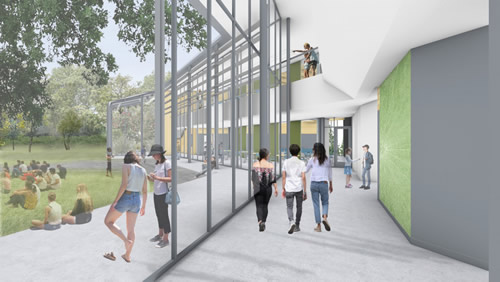College of the Atlantic Plans New $13M Academic Building
This spring, groundbreaking will take place on the campus of the College of the Atlantic in Bar Harbor, ME, on a new $13-million, energy-efficient Center for Human Ecology building that will house science laboratories, lecture halls, faculty offices, art and design studios, and a teaching greenhouse.

The two-story, 29,000-square-foot building will be built to exacting energy standards, reducing energy usage by 80 percent compared to a similar building with more traditional construction designs and materials.
The architects for the project are Susan T. Rodriguez of New York City and GO Logic of Belfast, Maine. E.L. Shea, Inc. of Ellsworth is expected to lead construction of the building, which is expected to be completed by September 2020.